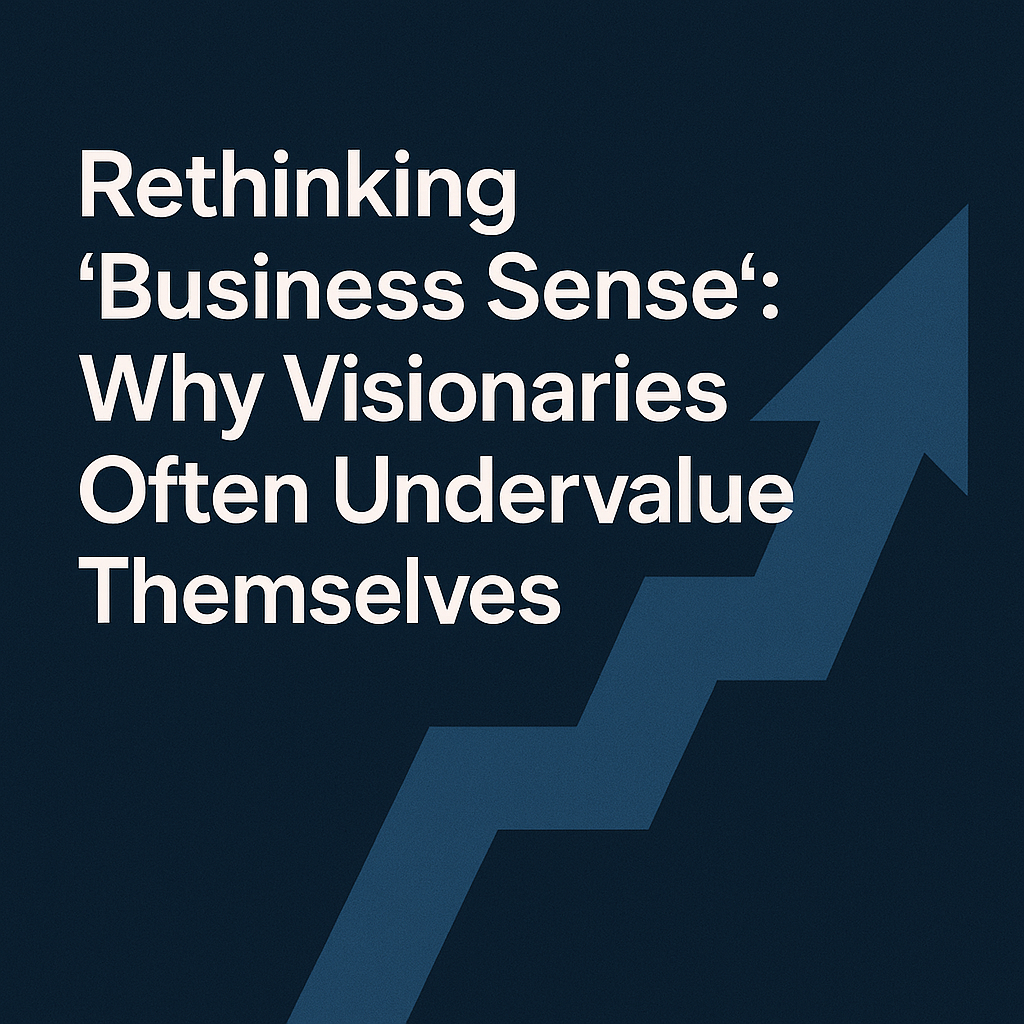Rethinking "Business Sense": Why Visionaries Often Undervalue Themselves

Rethinking "Business Sense": Why Visionaries Often Undervalue Themselves
August 12, 2025
Recent Blogs

Law Firm SEO: Search Engine Optimization for Attorneys
March 25, 2025

Unlocking Hyper-Local SEO Success: A Revolutionary Approach by Los Angeles SEO Group
March 24, 2025

Why Expert SEO Help Is the Key to Unlocking Your Business’s Online Success
February 17, 2025

The Rapid Evolution of SEO: Adapting to Google’s Latest Changes
May 24, 2024

Web Design Los Angeles: Responsive Websites and Web Development
May 16, 2024

Digital Marketing Services in Los Angeles
October 4, 2023

What you need to balance when doing SEO
August 25, 2023
A Perspective from Falcon Marketing
Falcon Marketing’s entrepreneurial survey revealed an eye-opening insight: many people who say they lack business sense are actually strong visionaries who simply struggle with people management. People management is a skill that can be hired. The uncommon and most valuable attribute is vision. This article explores that insight in depth, supported by external research and real-world examples.
1. The Visionary and the Manager: Distinct but Complementary Roles
Research Insights
-
Visionary leadership is strongly linked to organizational effectiveness. A study of nonprofit organizations found that leaders exhibiting visionary and transformational traits drove the highest levels of perceived effectiveness among teams (researchgate.net).
-
In corporate and innovation contexts, visionary leaders inspire creativity, guide teams toward future goals, and enable environments where innovation thrives (en.wikipedia.org, janushenderson.com, soundingboardinc.com).
Real-World Evidence
-
In Built to Last, Jim Collins and Jerry Porras demonstrate how visionary companies significantly outperformed their peers, delivering 15 times the stock market returns of comparable companies (en.wikipedia.org).
2. Visionary Founders: A Unique Breed
Financial and Innovation Advantages
-
Founder-CEOs often drive stronger stock performance and innovation. Research shows companies led by founders earned an average of 8.3 percent excess annual return and spurred higher innovation investment and patents (en.wikipedia.org).
The Nuance of Founder Leadership
-
As businesses grow, founder-led companies sometimes face governance challenges. Financial Times analysis shows visionaries may resist oversight, which can limit scalability. This is why pairing vision with strong operational leadership is critical (ft.com).
3. Team-Based and Shared Leadership: Not a Solo Game
Innovation in Flatter Structures
-
Teams with flatter, egalitarian structures produce more novel and broadly impactful work compared to hierarchical ones. Leaders in these teams act more as vision-framing contributors than command-and-control figures (arxiv.org).
Shared Leadership Benefits
-
In modern, distributed environments, shared leadership increases effectiveness, cohesion, and innovation by spreading influence across the team (en.wikipedia.org).
4. Balancing Vision and Execution
Complementary Skill Sets
-
Effective organizations need both visionary leadership, which inspires and sets direction, and management strength, which handles planning, execution, and logistics (m.economictimes.com).
-
Visionary leaders act as coaches, motivators, and stabilizers. Managers focus on operational priorities and execution (asana.com).
The Founder’s Role
-
The challenge is not to become a master of every operational discipline. The challenge is to know what you can lead and what you should delegate. Your visionary capacity is your highest-value contribution.
5. Personality and Vision: Science Affirms the Role of Visionaries
Psychological Foundations
-
Studies on founder traits reveal that successful entrepreneurs often score high in openness, novelty-seeking, and activity. These are classic indicators of visionary behavior. They also benefit from building personality-diverse teams for balance (arxiv.org).
6. The Falcon Marketing Lesson
Falcon Marketing’s findings are clear:
-
Many entrepreneurs who doubt their business sense are actually visionaries who lack people management skills.
-
People management is hireable and should not be the deciding factor in self-assessment.
-
Vision is rare and irreplaceable. It is what drives differentiation and long-term success.
-
The optimal strategy is to be the architect and assemble a team that executes your plan

